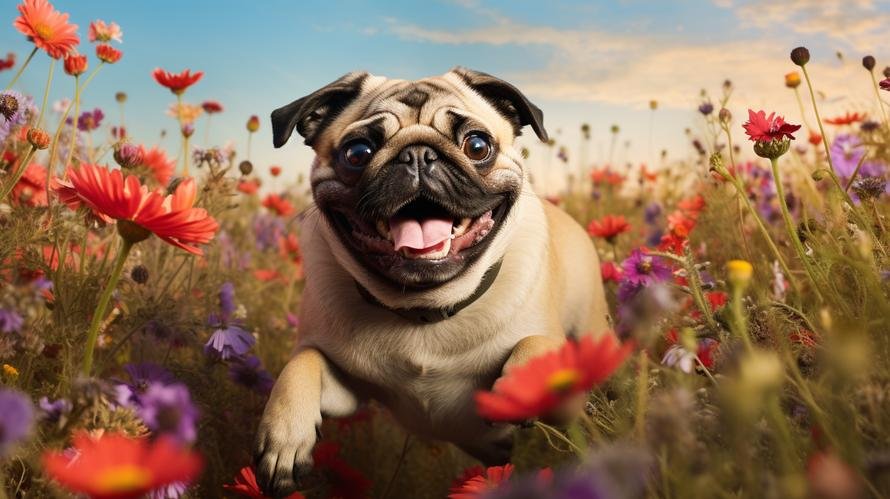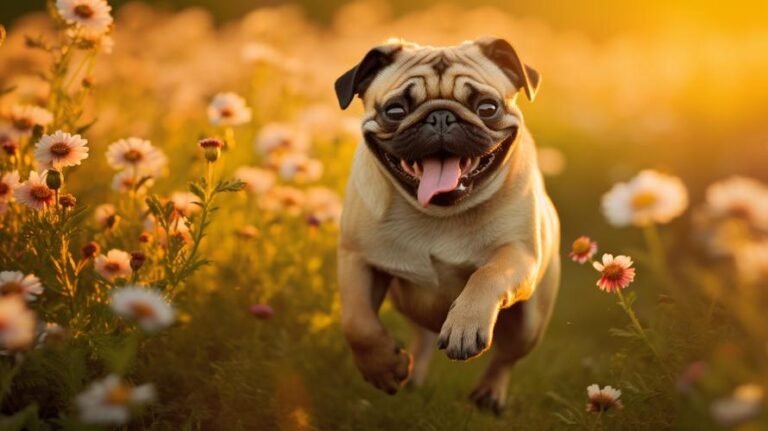Did you know that pugs, those cute, wrinkly-faced dogs, have taste buds that are 40 times more sensitive than ours? It’s true! Their incredibly heightened sense of taste turns every meal into a fascinating feast of flavors. But not all foods are beneficial for them. Just as we can be tempted by unhealthy foods that taste great, so too can our pugs.
The trick is finding what foods your pug loves that are also good for them. Pugs have specific nutritional requirements due to their size, breed characteristics, and commonly faced health issues. This article aims to give you valuable advice on what foods your pug will find delicious and nutritious.
First, let’s dive into some general diet guidelines for pugs.
Pugs do best on a diet that is high in quality proteins and low in fillers like corn or wheat. The proteins support muscle growth and maintenance while the low fillers prevent unnecessary weight gain, a common health problem in pugs. Additionally, pugs need an appropriate balance of vitamins, minerals, and fatty acids to support their overall health and maintain their beautiful shiny coats.
So, what specific foods fall under these categories? Let’s explore the healthy foods that your pug is bound to love.
1. Chicken: Pugs love poultry, and chicken is a great source of lean protein. However, keep in mind to always cook the chicken thoroughly and remove any bones before giving it to your pug.
2. Fish: It’s not just cats who love fish! Pugs also enjoy the taste of cooked salmon or whitefish. These are excellent sources of protein and omega-3 fatty acids, which supports heart health and promotes a shiny coat.
3. Sweet Potatoes: Sweet potatoes are full of vitamins such as A, B, and C, and fiber which aids digestion. They can be cooked and mashed before serving to your pug.
4. Peas: A great source of vitamins K, A, and B, peas are small enough for a pug to eat and provide a sweet treat that boosts their nutritional intake.
5. Blueberries: A delicious and healthy snack packed with antioxidants and fiber. But remember, due to their sugar content, they should be given in moderation.
6. Carrots: Not only do pugs relish the crunch and taste of carrots, but they also benefit from the large amount of vitamin A they provide. This supports eye health, an area of concern in pugs.
With the “dos” out of the way, let’s consider some “don’ts”. There are certain foods pugs may love, but you should avoid giving them. These include chocolates, grapes, raisins, onions, and garlic, as they are toxic to all dogs. High sodium foods can also be harmful and lead to dehydration or salt poisoning.
Just as there are foods to avoid, it’s also crucial to avoid overfeeding your pug. This cute breed is prone to obesity, which can lead to many health issues like diabetes, heart disease, and joint issues. Portion control is key. Given their size, pugs don’t require a lot of food. Typically, 1/2 to 1 cup of dog food spread over two meals a day is sufficient.
Remember, every pug is unique. What one pug loves, another might turn their cute wrinkled nose up at. It’s important to pay attention to your pug’s responses to different foods and adjust their diet accordingly. Above all, any significant change in diet should be discussed with your vet.
Now that you are armed with this treasure trove of information, it’s time to play chef for your pug. Make mealtime an exciting and wholesome experience for your furry friend. Happy feeding!



